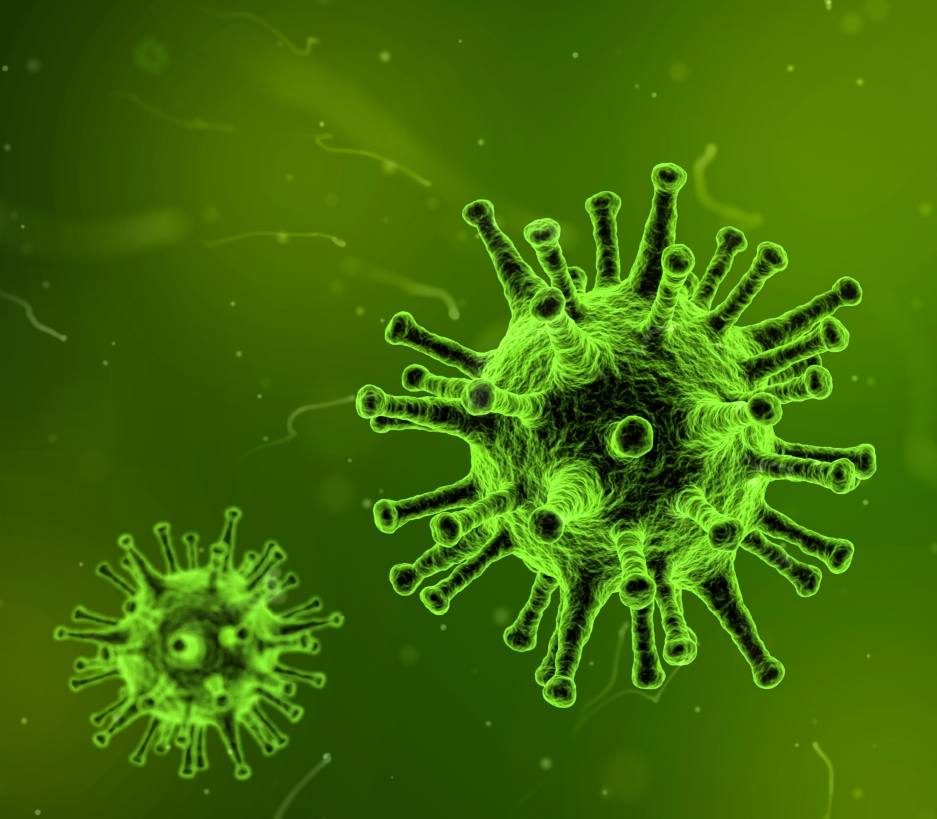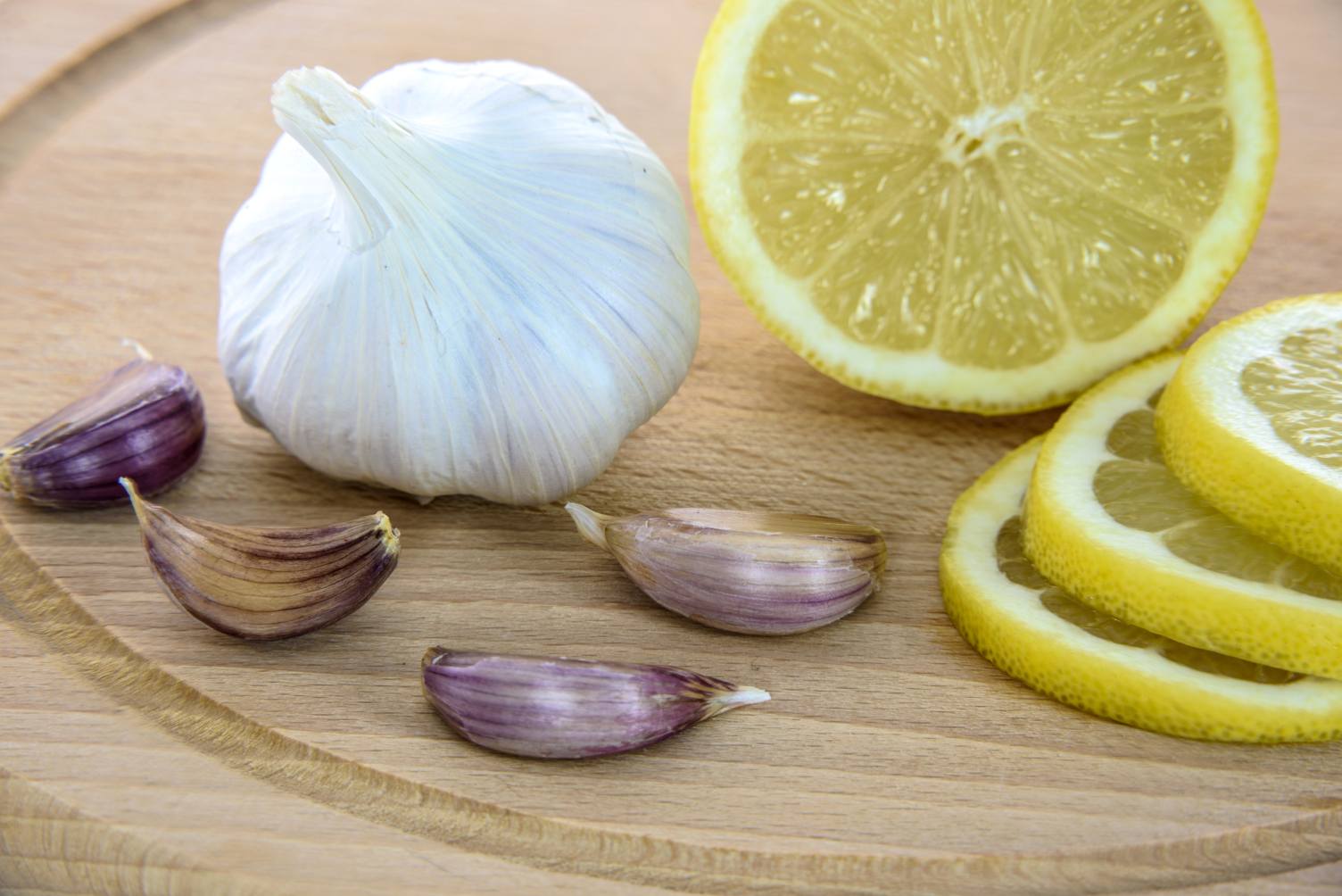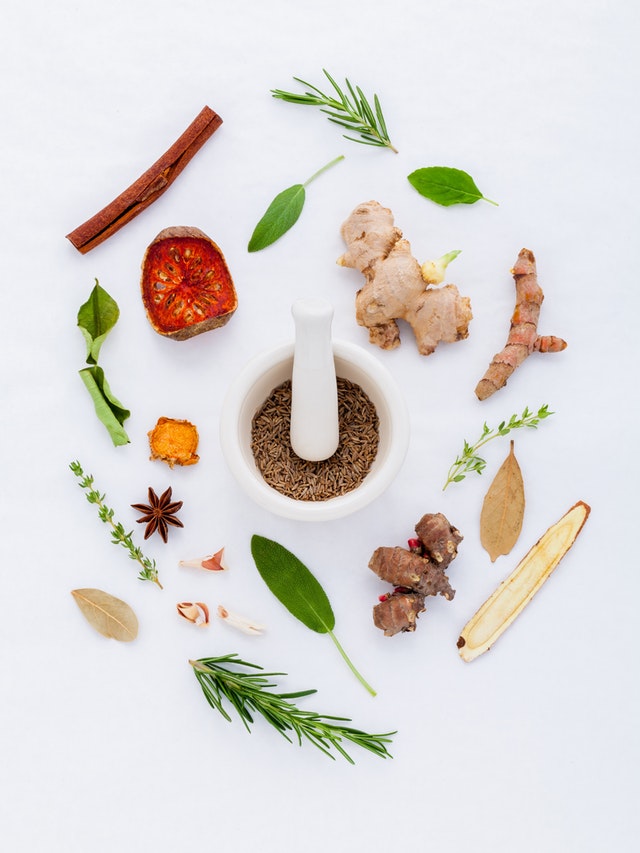
While hand sanitisers, soap and antibiotic medicines work well to combat infectious and pathogenic microbes, there are many other ways we can keep ourselves safe from microbial invasions, especially when incorporated with a healthy diet and lifestyle.
Pathogens include bacteria, viruses, moulds, and parasites. COVID-19 is a virus and operates quite differently to bacteria. Viruses need a host such as a human cell to survive and reproduce, whereas bacteria live independently. Viruses can live on a surface for a short period of time, but are reliant on being transferred into a human body, generally by getting in to the mouth, nose or eyes. Antibiotics work by identifying bacteria and killing them, whereas viruses enter a human cell and effectively become that cell, using the reproductive system of the cell to reproduce itself. This means antibiotics are ineffective at destroying them.
Many foods naturally control and destroy pathogens and some pure essential oils are also extremely effective and can be used in many ways around the home to create a safe, microbial free and chemical free alternative.
No one substance in isolation will destroy every pathogen, however, keeping your immune system strong with healthy nourishing foods, keeping stress levels under control and keeping away from sugary, highly processed foods will help to minimise the risk of falling ill. Of course good hygiene is also paramount and will prevent pathogens from gaining entry into the body in the first place.
Antimicrobial Foods

Honey, Lemon, Garlic, Turmeric, Coconut Oil, Pineapple, Ginger, Aloe Vera
Honey, in particular high-grade Manuka honey, is very effective against invading bacteria. At the first sign of a cold, a teaspoon of honey in hot water, sipped slowly can really help to sooth a sore throat and combat pathogenic invaders. Several cups a day, along with a squeeze of fresh lemon juice provides a double dose of antimicrobials as well as a dose of vitamin C, which supports the immune system. Honey has been used for centuries, not only orally, but also topically on cuts and wounds to effectively stop infection.
Lemon has many fantastic uses in cooking, but its juice and oils from the skin are also antimicrobial. This superfood is also a fantastic digestive. A squeeze of fresh lemon juice in warm water, drunk 30 minutes before a meal will help to prepare the digestive system for food, reducing digestive discomfort in those who suffer with reflux or other digestive issues. Taken this way can also reduce the instances of pathogenic bacteria in the digestive system, and in some cases, reducing the need for antibiotics. Lemon essential oil can also be effective against topical fungal infections. A few drops placed into some coconut oil can be very effective against skin conditions that are fungal in nature.
Garlic has long been known to have antimicrobial properties, mainly against bacteria. While it can be purchased as a supplement, the best and healthiest way to consume it, is in its natural food form. Crush it into your home cooked meals for the best and most natural effects.
Turmeric is certainly receiving a lot of attention lately as it has so many healing properties due to its role in reducing inflammation. It is also a powerful antimicrobial and this may explain its anti-inflammatory action. There are many supplements available that include curcumin, which is the active ingredient in turmeric, but incorporating this spice into your cooking, along with some black pepper can also be very helpful. Used in soups along with garlic and ginger, makes a powerful antimicrobial meal and can be helpful as a preventative measure or to reduce symptoms when ill and support the immune system when colds or flu take hold. Curcumin has more recently been researched as a possible aid to reduce cognitive impairment with some promising results.
Coconut oil is another very versatile food in the kitchen as it can be used for cooking at high temperatures, baking or even spreading on toast. But you may not realise that it is also a fantastic antimicrobial. A common use is to take a teaspoon of coconut oil, place it in the mouth, and hold it in the mouth for as long as you can, swishing it around as much as possible and then spitting it out into a tissue (don’t spit it in the sink as you will block your drains). This method, sometimes called teeth pulling, helps to destroy harmful bacteria and yeasts in the mouth such as candida or bacteria that cause bad breath. Coconut oil can also be used as a beauty product such as a moisturiser or as an effective makeup remover.
Pineapple contains a compound called bromelain which has healing and antimicrobial properties, especially in the digestive system. Fresh pineapple is lovely to eat but it can also be chopped into chunks, frozen, and added to smoothies, especially nutrient dense green smoothies. The core of the pineapple has the highest concentration of bromelain, so be sure to get as much of that part as you can.
Ginger has many beneficial properties including anti-inflammatory, anti-fungal, anti-bacterial and is an excellent digestive. It can be used to make herbal teas or used to flavour meals, making it a useful pantry staple. Ginger is commonly used to treat nausea by taking some slices of ginger and adding boiling water to make a tea. It can also be added to smoothies to help calm and nurture the digestive system.
Aloe Vera has long been known for its ability to reduce inflammation, promote healing and also prevent infection. It’s a plant that is so easily grown and can easily be applied to cuts, abrasions and burns by simply snapping off a leaf and applying directly to the skin. It is also commercially available in so many forms such as topical gels which are great for acne or other bacterial illnesses such as chicken pox or shingles as it eases the itch, soothes and kills the bacteria. Pure aloe juice is also effective for healing a compromised digestive system as it promotes healing and kills pathogenic bacteria.
Pure Essential Oils

Essential oils are the oils taken from a particular plant and are generally a 100% pure concentration. Some of these oils should not be placed directly onto the skin, but can be used by adding a few drops to a carrier oil or liquid before using. Most pure essential oils should not be ingested unless it is stated on the packaging.
Tea Tree Oil – add a teaspoon to your weekly washing to disinfect clothing and leave them smelling fresh and clean. Add 5-10 drops to a spray bottle with water to make a powerful disinfectant. Use the pure oil on a cloth or tissue to remove sticky substances (test small area first to make sure you are not damaging furniture etc.).
Eucalyptus Oil – can be used the same as Tea Tree Oil. It is also very good at clearing blocked sinuses by adding a few drops to a bowl of boiling water and inhaling. Another option for a blocked nose is to place a few drops onto a tissue and place it under the pillow to help clear the nasal passages and promote better breathing.
Lemon Oil – Can be used in the same way as Tea Tree Oil. Another use is to add 5-10 drops to a spray bottle of water and lightly spray mattresses, pillows and quilts. These leaves bedding smelling fresh and provides an environment that is not desirable to bed bugs.
Aloe Vera – Use the fresh leaf of the plant on abrasions or sunburn to soothe, heal and fight infection. As a drink, aloe juice is healing and antimicrobial in the digestive system. Drink 10-20ml at night on an empty stomach. For more severe digestive system problems, a combination of aloe juice and specific probiotics and diet can be extremely effective for rebalancing a microbiome to a healthy state.
Lavender – Such an incredible, easy to grow and versatile plant, lavender can be used in many ways. Its calming properties have been used for centuries to aid in sleep and is one of the few oils that are safe to place directly on the skin. Place a few drops on the wrist and rub into the temples to aid with headaches and migraines or place a few drops in a water bottle to use as an antimicrobial spray. If you have access to the lavender plant, cut a bunch and hang it in your wardrobe to create a fresh environment which is uninviting to moths.
Thyme Oil – Thyme is another herb that has similar antimicrobial properties. As a fresh herb it can be incorporated into many dishes. As a pure oil, it should always be used with a carrier oil and not ingested as a pure substance. It has been researched for its ability to destroy some of the most powerful bacteria, including anti-biotic resistant bacteria.
Oregano Oil – Another culinary power herb with powerful antimicrobial properties and can be used in the same way as thyme or lemon oil. Used together in a blend in a spray bottle of water can create an incredibly powerful antimicrobial which can be sprayed onto surfaces, clothing, bedding or in the air.
Clove Oil – Cloves have long been used in cooking to give a unique flavour to food, however, the pure oil can also be a powerful mould killer. Watered down, it can be used anywhere where mould exists, including in the bathroom. Clove oil has also be used for centuries to treat tooth aches and bad breath. Added to a teaspoon of coconut oil and swished around the mouth and then spat out is one of the best methods of freshening the mouth, along with regular teeth brushing and oral hygiene practices.
Footnote
The properties of pure essential oils and foods have been used effectively for centuries and have a multitude of uses for health and wellbeing and I have only listed a few in relation to antimicrobial uses. Antibiotics are incredibly powerful and sometimes necessary in our modern healthcare system, however, they are often over-prescribed. Nature already provides us with many resources that are commonly available and are incredibly effective. Always read the label before using any pure oil and test a small area first. If unsure, always speak to your natural health practitioner for more guidance on whether a natural remedy is appropriate for your particular circumstance. There are not substitute pills or remedies that will repair an unhealthy diet and lifestyle, and speaking with a holistic nutritionist will provide you dietary guidance and resources to steer you back into the right direction. Using certain foods and essential oils can then add to your resources and provide your body the environment for healing and microbial resistance.
Cleaning Agent Recipe
This antimicrobial cleaning recipe can be made up in a spray bottle and used throughout the home to create a clean, fresh, microbial, and chemical free home.
5 drops – Oregano oil, 5 drops – Lemon Oil, 20mls Vinegar, Top up with water, Shake and spray.
